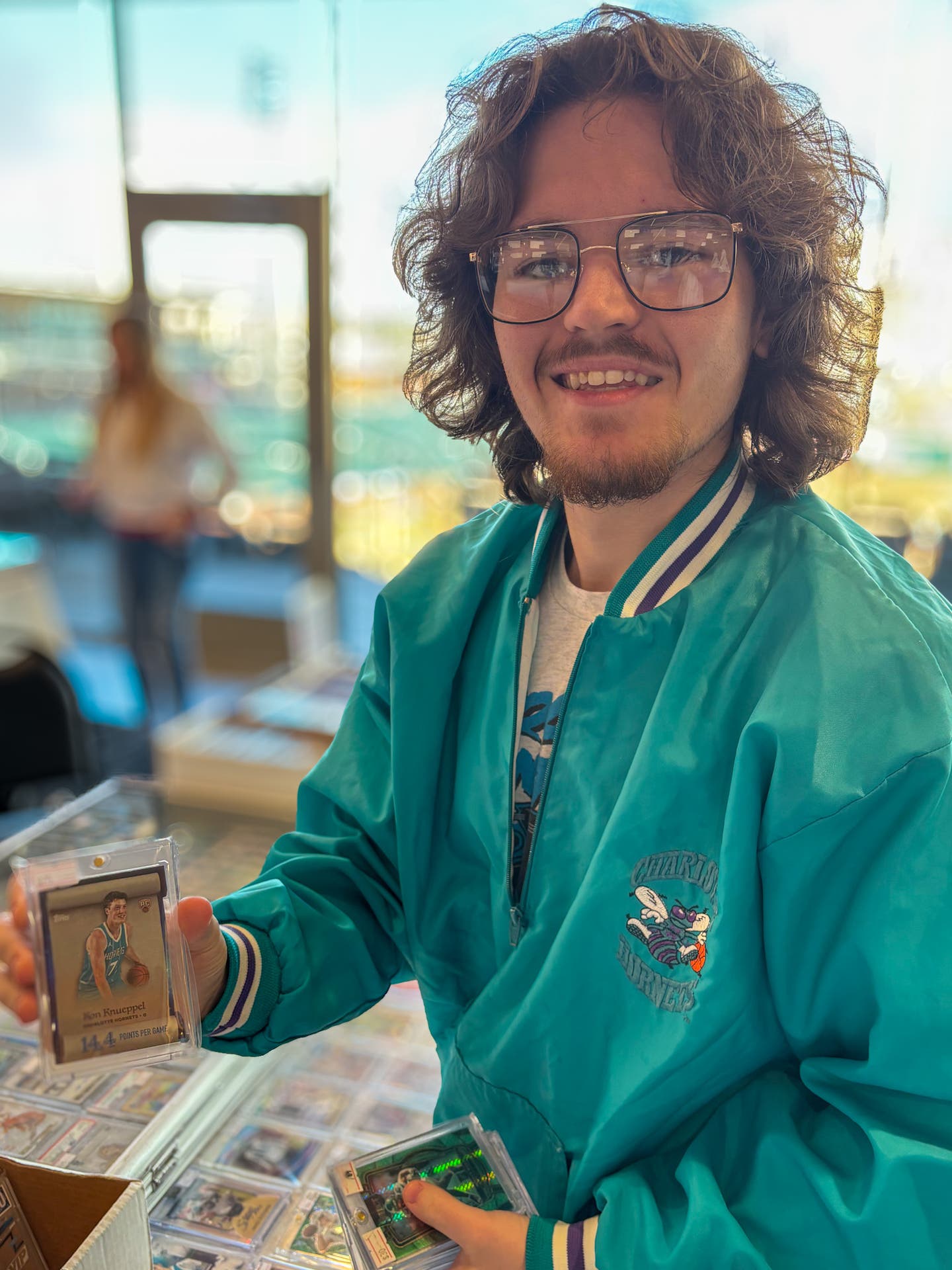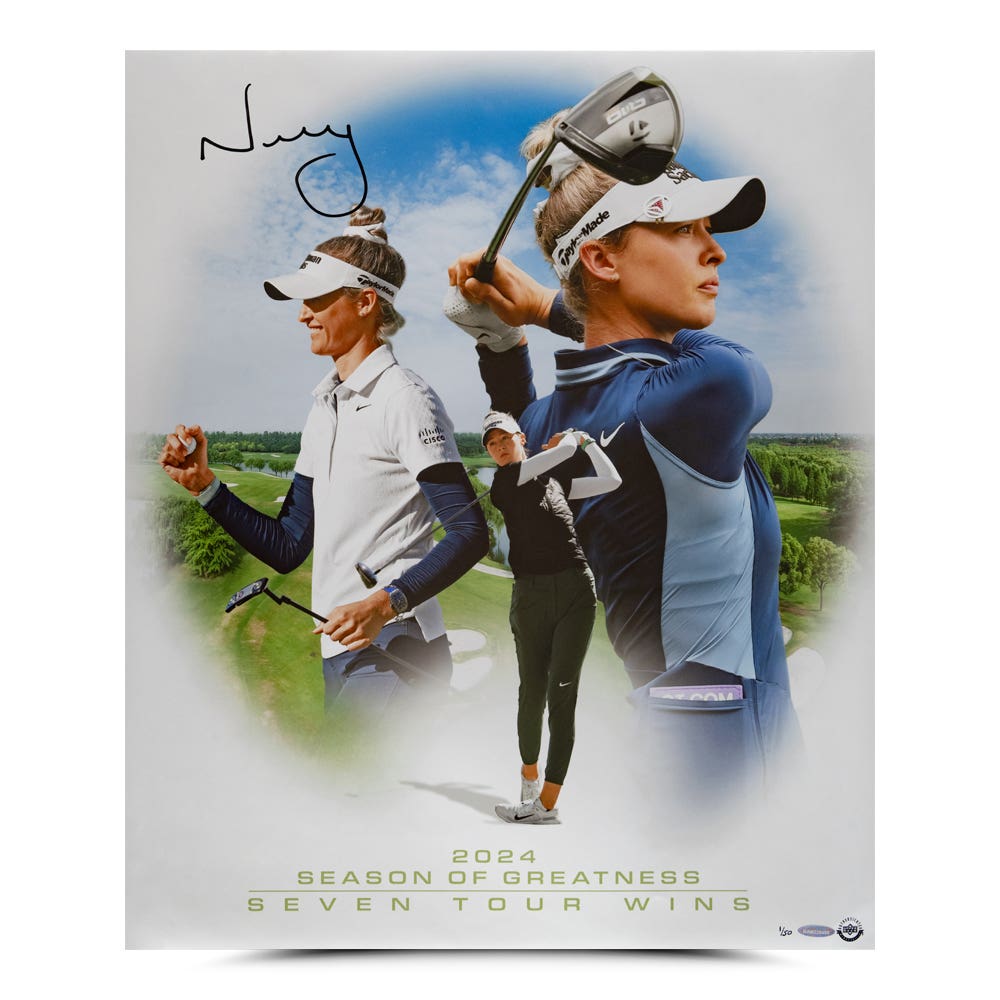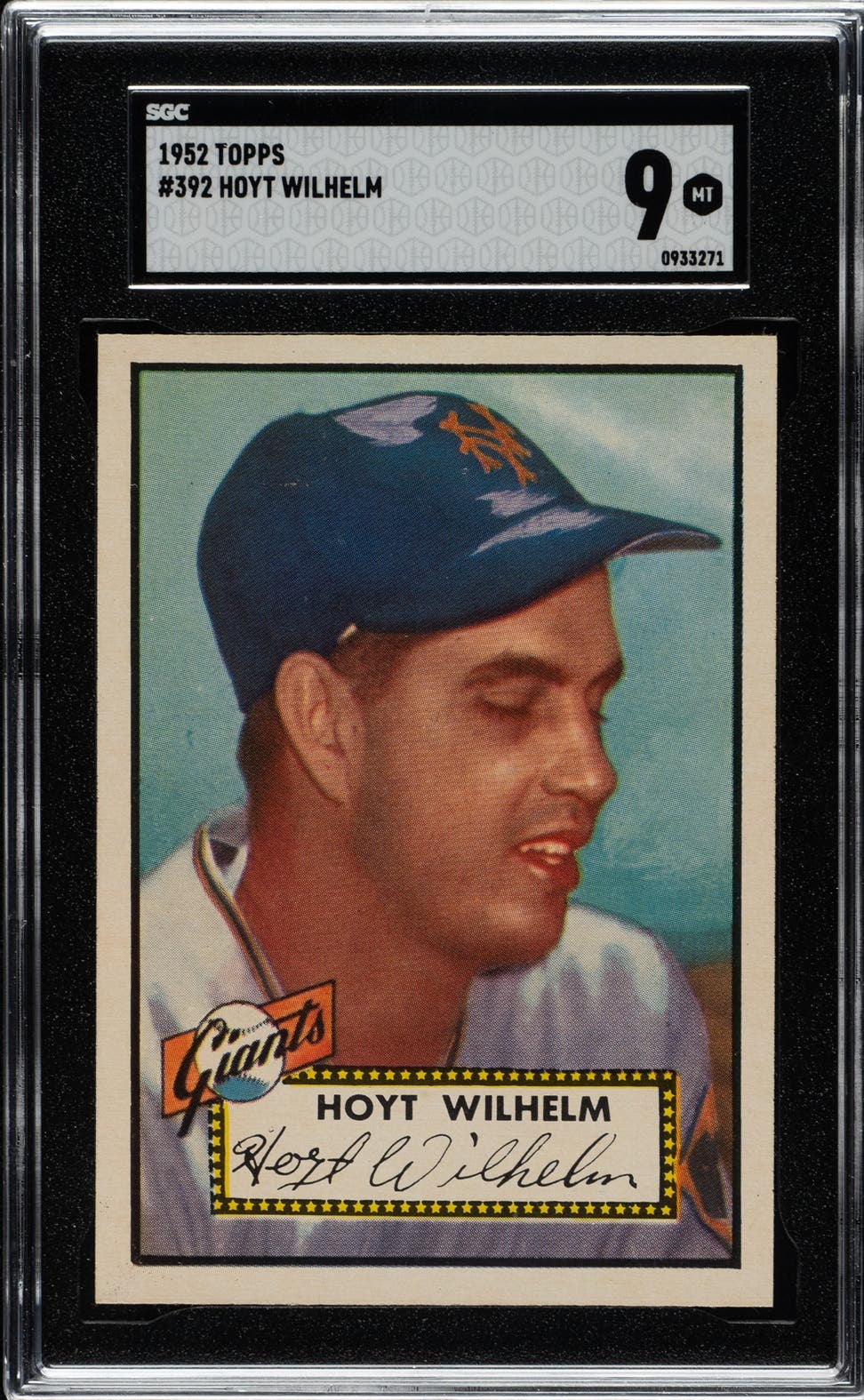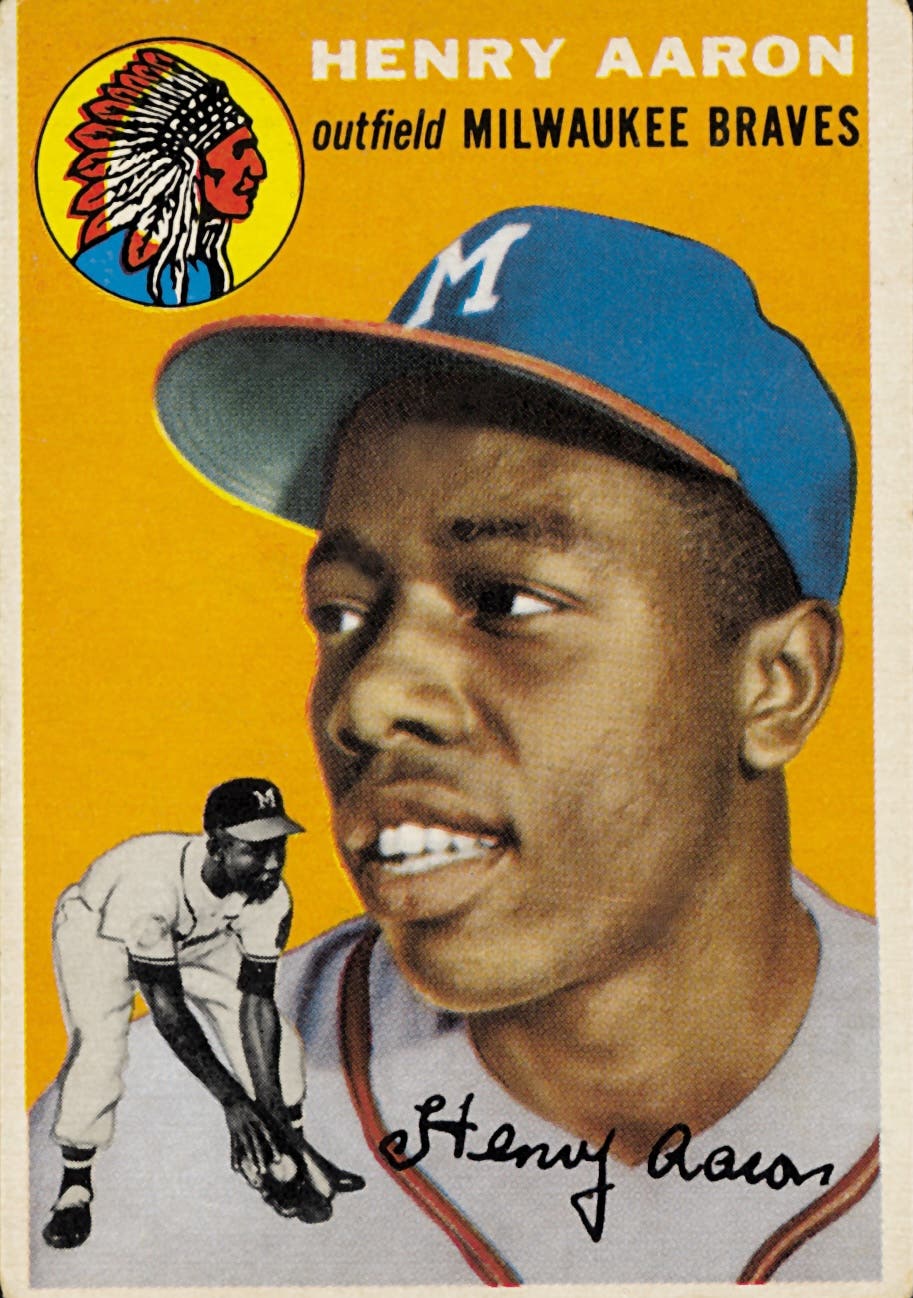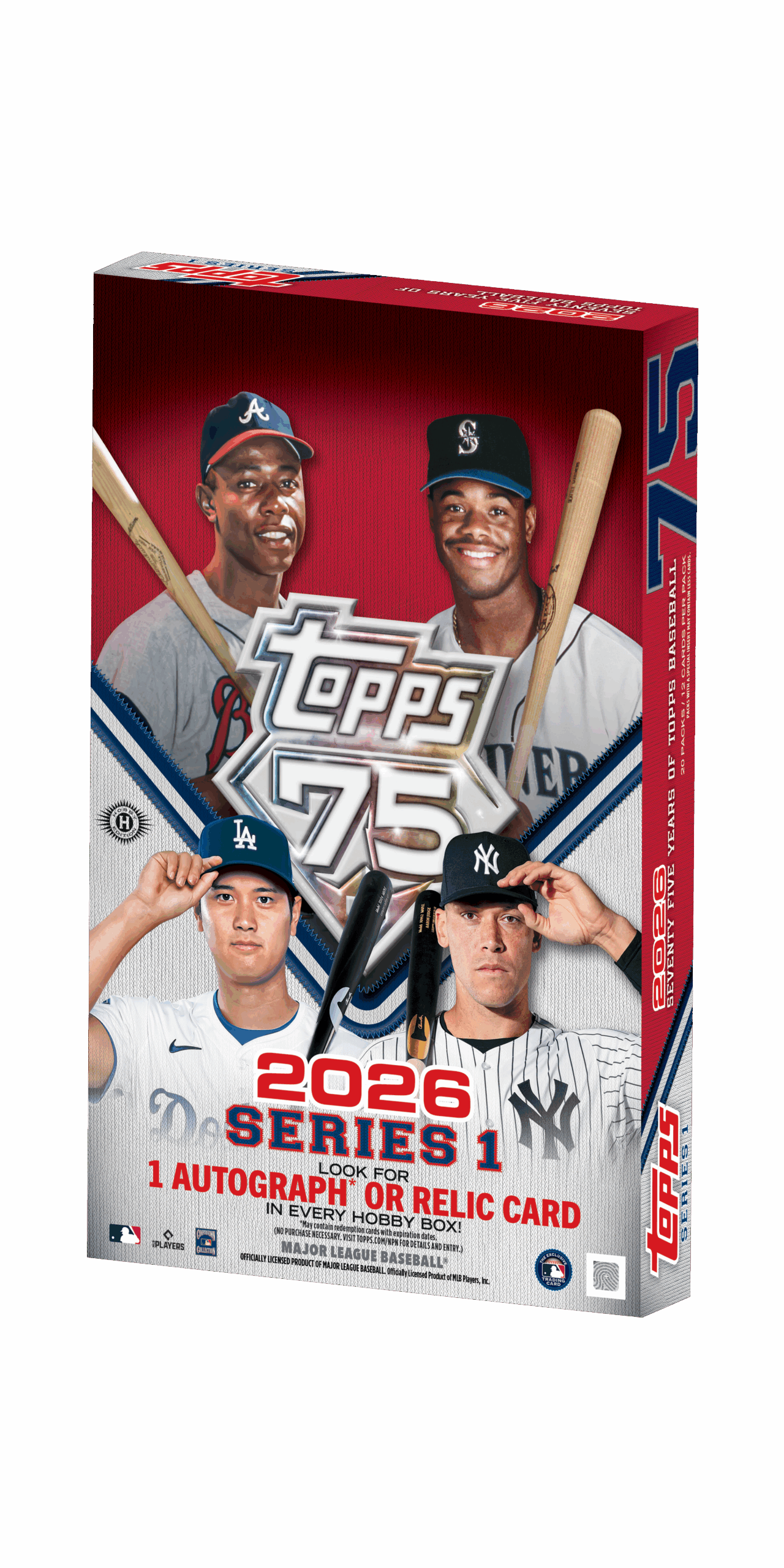News
Hockey greats and families converge at Toronto Sport Card and Memorabilia Expo
By Hank Davis
An interviewer once asked Wayne Gretzky about his uncanny ability to anticipate where the puck was going. His question casually referred to it as a “God-given gift.”
“No, it’s not,” Gretzky shot back. “It’s Wally-given.”
Wayne Gretzky was not trying to debate theology. He just wanted to make sure that his father, Walter Gretzky, got his due as a parent and a coach.
The man who excelled in both those roles was a guest at the May 2017 Toronto Sport Card and Memorabilia Expo, appearing beside hockey legends like Eric Lindros, Eddie Shack, Johnny Bower, Red Kelly, Norm Ullman, Bobby Hull, Guy Lafleur, Bernie Parent, Grant Fuhr, Paul Coffey, Curtis Joseph, Taylor Hall, Billy Smith and others.
Gretzky Senior, who hails from Brantford, Ontario, was the object of much attention and affection by attendees who wanted a look at the man who had fathered – in the fullest sense of the word – Wayne Gretzky.
Nearing his 80th birthday, Walter Gretzky has gone well beyond the role of “hockey dad.” He was named to the prestigious Order of Canada in 2007, “for his contributions to minor hockey in Canada, and for his dedication to local, provincial, and national charities.” Walter’s story was recounted in two self-penned books as well as a TV movie produced in Canada by the CBC, called “Waking Up Wally: The Walter Gretzky Story.”
In other family news at the Expo, held May 5-7, two sons of hockey legend Gordie Howe were in the front of the hall signing autographs when I spotted someone in the audience who looked like he might be part of the family, if you added about 100 pounds to him. A brief chat revealed that this mystery guest was indeed Murray Howe, younger brother of featured guests Marty and Mark Howe. Although Murray followed the family tradition and spent some time on the ice, he knew early on that hockey would not be his calling.
“I skated for a while, but I knew I wasn’t good enough to make it my life. I tried out for the team in my first year at the University of Michigan and I didn’t make it. Even if I made the team, I knew I’d always be the guy on the bubble. So I hung up the blades. I went on to medical school after I graduated. I never would have done that if I had made the team, so things worked out OK in the long run. [Dr. Murray Howe is Chairman of the Radiology Department at Toledo (Ohio) Hospital.]
“I knew what greatness was. We all did growing up with my father. I saw it again when I played with the Seneca Nationals in the 1976-77 season. One of my teammates was Wayne Gretzky. He was about 15 at the time and he was the youngest and the best player in the league. There was no doubt about it. Anybody who played with him knew he was destined for greatness. His father, Walter, was the best kind of coach and parent. He never pushed him. In Wayne’s case, of course, he didn’t need much pushing.
“My father coached us the same way. There was really no pressure. My brother Mark lived and breathed hockey from the moment he woke up in the morning. Marty was different; he loved football more. He’s the oldest of the three of us. Mark is a year younger and I’m five years behind him, the puppy in the family.
“My brothers came here because they were invited to do the signing at the first public display of the Howe Family Collection. We wanted to see that our father’s memorabilia and artifacts were treated right, as they have been here. I’m also here because I wanted to watch my brothers at a signing. It was important to me to see all of this so I drove up from Detroit to be here. And that’s how you found me.”
A final note: When you go to a sport card Expo regularly (over 10 years in my case), there are certain people you look forward to seeing. These may start off as “business” relationships between dealer and customer but they can end up as more than that. To the credit of Al Sinclair, who started the show more than 25 years ago, many of the same dealers came back regularly and patrons knew where to find them. You’d end up at their table every six months, browsing through boxes of cards and making small talk about the Leafs or the Blue Jays.
That’s how I met George Kosta and Playmaker Cards. George sold cards for reasonable prices, and he had a good attitude. Mostly it was his attitude that stood out, although he had some darn good cards too. Fellow dealers and customers knew who George was. Over the years I watched him deal with seasoned collectors and 10-year old kids attending their first Expo with equal aplomb. George’s smile was genuine and I looked forward to seeing it and shaking his hand twice a year. I also looked forward to browsing his stash of retro baseball cards and shooting the breeze with him before returning to the “work” part of these Expo visits, doing interviews and shooting photos.
I won’t be seeing George at the Toronto Expo any more. He died on Feb. 10, not long after the Fall Expo last year. He died from a particularly aggressive form of cancer at an obscenely young age. He was a very young looking 50; in fact, I was surprised to learn that he had had his 40th birthday. In the chapel book where George’s memorial service was held, one guest wrote “I can’t think how he could have been any nicer.”
I only saw George twice a year, but those words seem completely reasonable to me.
Hank Davis (hdavis@uoguelph.ca) is the author of Small-Town Heroes: Images of Minor League Baseball.



